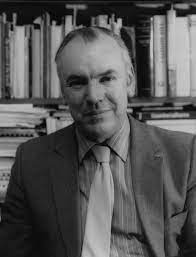Martin, David

Bio: (1929-2019) British sociologist. David Martin received his doctorate from the London School of Economics, where he later became a professor of the sociology of religion. Martin dealt with various topics within the sociology of religion: secularization, Protestantism in South America, the relationship between religion and war, and the relationship between religion and power. In the article "Denomination" (1962), Martin expressed the opinion that denomination, as a structural form of a religious organization, represents a historically and culturally specific form, and not a stage on a quasi-evolutionary continuum (cult-sect-denomination-church).
Although at the beginning of his career, he rejected the significance and usefulness of the concept of secularization in sociology, he later wrote a very important study of this phenomenon – A General Theory of Secularization (1978). In this book, Martin states that the process of secularization in some countries is influenced by many factors: ethnic identity, theological teachings, historical circumstances, political organization, class or class system, etc. Martin singles out three factors that are most important for the role that religion plays in different countries: 1) the level of religious pluralism, 2) the political system and the relationship between state and church, and 3) the influence of religion in creating national, regional or ethnic identity. However, he singles out religious pluralism as the most important factor, that is, whether or not there is a religious monopoly.
If there is religious pluralism, then several new factors become important: the number and geographical distribution of religious minorities; the relationship between religious groups and dominant elites, as well as the very nature of religious teachings of different religions. Martin singles out several typical situations regarding pluralism in European countries and the USA: 1) complete monopoly of the Roman Catholic Church, 2) dominant Protestant church, but there is also a Roman Catholic minority, 3) there is a state church but there are many other churches, 4) complete pluralism without dominant churches (the USA is the best example), 5) states in which one Protestant or Orthodox church is dominant. Martin believes that Catholic states are, in most cases, less secular than those dominated by Protestantism. He believes that in countries such as the United States, the Netherlands, and Switzerland, religion has a greater role because it helps preserve the ethnic identities of different communities. All these numerous factors influenced the way the process of secularization played out in different countries. Martin believes that secularization is mainly a European phenomenon, connected with the struggle between churches and secular forces in European history.
He believes that the increase in religiosity in Eastern Europe, after the fall of communist regimes, should be seen as an authentic phenomenon, and not just as a consequence of the rise of nationalism in those countries. Martin paid a lot of attention to studying the rise of Protestantism in Latin America and concluded that the teachings of these churches attract members of the middle class because they emphasize the values of frugality and self-discipline. He also studied Islamic countries, where he noticed that there are great differences, between different countries, in the importance of religion in society and the state; and that the most important factor is the attitude of the state towards religion. In countries where the state supports and encourages Islam, the influence of Islam is stronger and vice versa. Martin is a great supporter of pacifism, and he dedicated the book Pacifism: A Historical and Sociological Study (1965) to this topic.
Main works
Pacifism: A Historical and Sociological Study (1965);
A Sociology of English Religion (1967);
The Religious and the Secular (1969);
A General Theory of Secularization (1978);
The Breaking of the Image: A Sociology of Christian Theory and Practice (1980);
Tongues of Fire: The Explosion of Protestantism in Latin America (1990);
Forbidden Revolutions: Pentecostalism in Latin American and Catholicism in Eastern Europe (1996);
Reflections on Sociology and Theology (1997);
Does Christianity Cause War? (1997);
Pentecostalism: The World Their Parish (2002);
Christian Language in the Secular City (2002);
On Secularization: Towards a Revised General Theory (2005);
Sacred History and Sacred Geography: Spiritual Journeys in Time and Space (2008);
The Future of Christianity (2011);
Religion and Power: No Logos without Mythos (2014).

